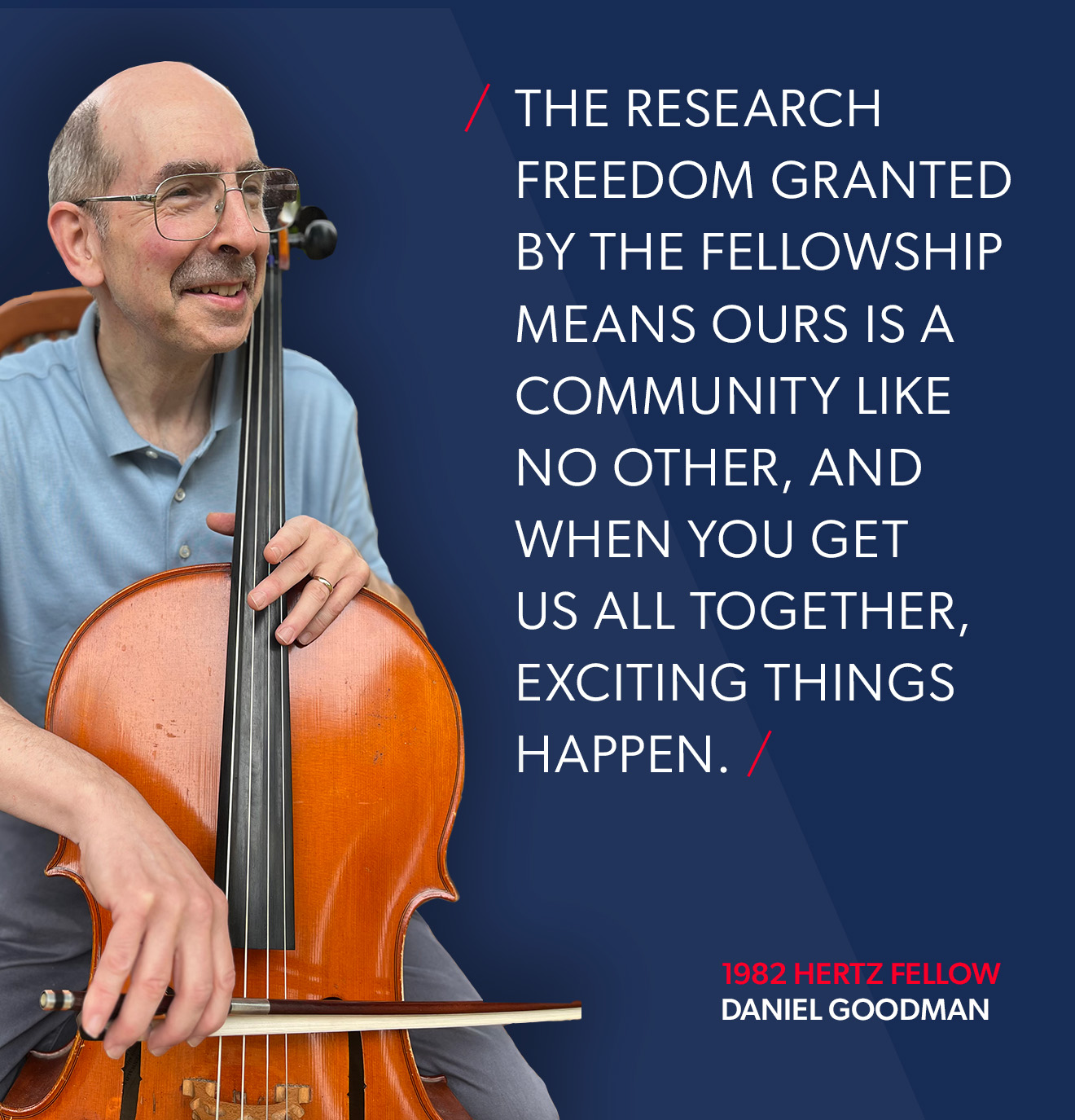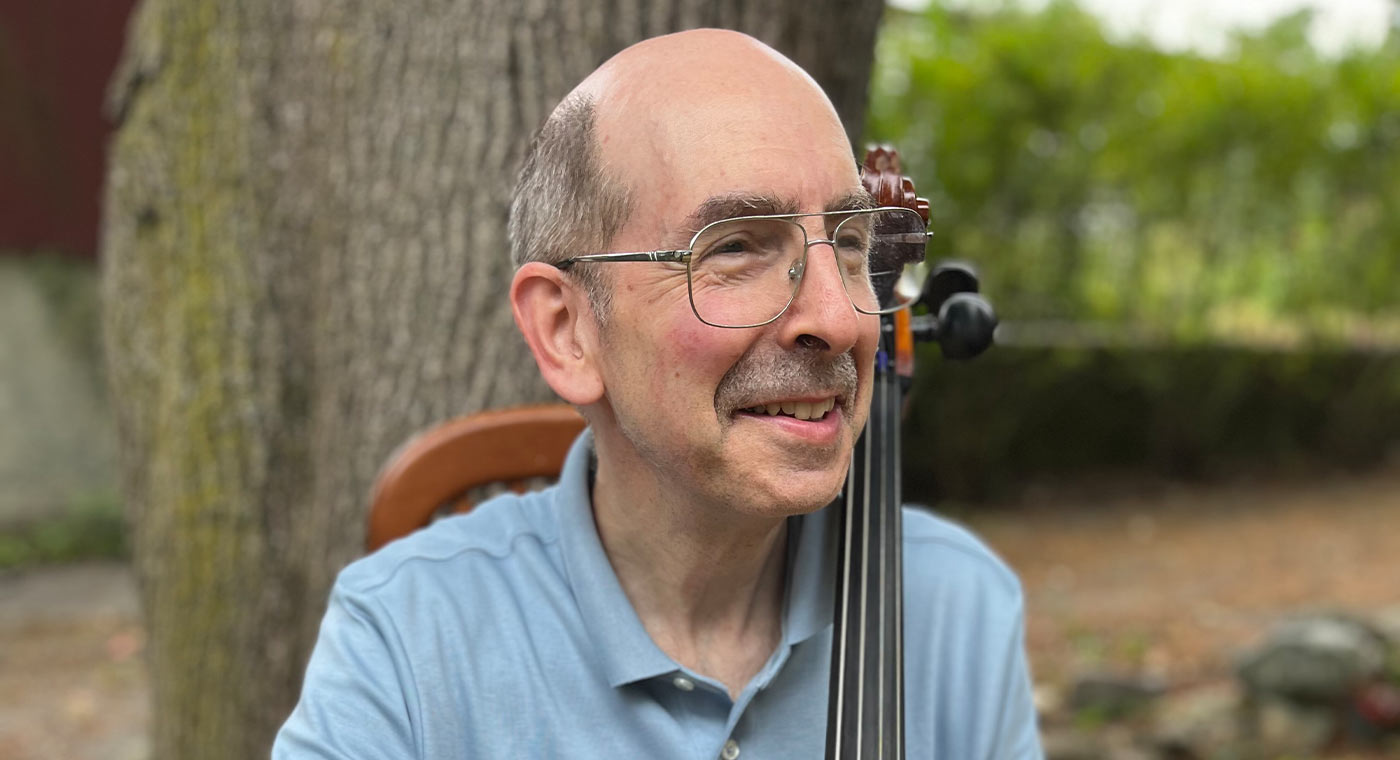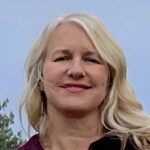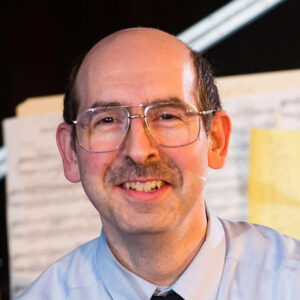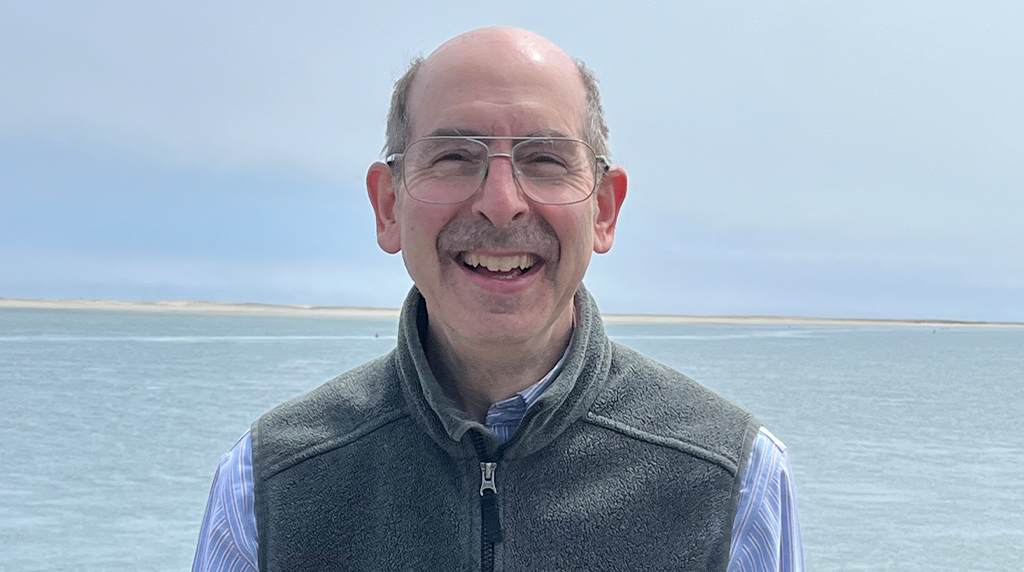
This summer, Hertz Fellow Daniel Goodman was named recipient of the 2024 Raymond Sidney Volunteer Leadership Award in recognition of his contributions to the Hertz Community—and there are many.
From the fellowship selection process and Fellowships and Programs Council, to the Diversity Task Force and Board of Directors, to his book, “Find Your Path: Unconventional Lessons from 36 Leading Scientists and Engineers” including the career advice of 18 Hertz Fellows, Goodman’s commitment to the foundation is remarkable. In a conversation with Director of Community Anne Kornahrens Ward, Goodman talked about why he gives so much and what he gets back.
Q. WARD: Thank you for your commitment to the Hertz Community, and congratulations on your recent award. What inspires you to volunteer so much of your valuable time and energy?
A. GOODMAN: I get to interact with some extraordinary people. Hertz Fellows are not just talented— they are committed, hardworking, curious, and creative. As an interviewer, I get to be “scientist for a day,” engaging in scientific discourse more broadly than I can in my day-to-day job as a director at ASMPT NEXX, Inc. I get to make a difference in people’s lives and in service of the nation.
Q. WARD: Of your many volunteer contributions and roles, which have been the most gratifying for you, and why?
A. GOODMAN: I’ve enjoyed every role, but writing my book was profoundly rewarding. In researching the book, my wife encouraged me to be very intentional about incorporating women and people of color. Those conversations opened my eyes to how much work was still needed to diversify the scientific community. I brought those learnings to the Diversity Task Force, which informed the foundation’s strategic plan, helping to enhance diverse pipelines to fuel innovation. For example, we’ve incorporated a representative from the National Society of Black Physicists (NSBP) into our interview process.
Q. WARD: You are very involved in the fellowship selection process. What makes our process unique, and how do you identify an exceptional candidate?
A. GOODMAN: Our interviews are famously challenging, lively, unpredictable—and they are conversations, where both parties are highly engaged. I study for a week to prepare for the weekend of interviews so that I’m able to discuss each candidate’s research in a meaningful way. Candidates stand out to me when they make me think in a new, non-linear way.
Q. WARD: We presented your award in absentia at the Summer Workshop, which was only the second workshop that you’ve had to miss, because you had an exciting chance to play music with your son. Tell us about your relationship with music, and how you see the relationship between music and science.
A. GOODMAN: Playing music with my son is one of my most favorite things in the world. I also perform cello, accordion, and piano regularly around Boston (including at a recent Hertz event), and I love to play piano at home after a day of work. Music is structured, just as science is structured, with standard notation and agreed-upon forms. And both science and music allow me to explore, improvise, and discover.
Q. WARD: One of your many volunteer roles includes the Hertz Community Committee. Since you were awarded your fellowship in 1982, the community has evolved dramatically. What changes are most exciting to you, and why?
A. GOODMAN: Until 2002, there really was no community. Now, Hertz Fellows are connected in so many ways—not only with each other, but with each other’s networks, too. When I was researching my book, I was able to reach almost anyone in the U.S. scientific community with just a phone call, thanks to the Hertz network. The research freedom granted by the fellowship means ours is a community like no other, and when you get us all together, exciting things happen.
